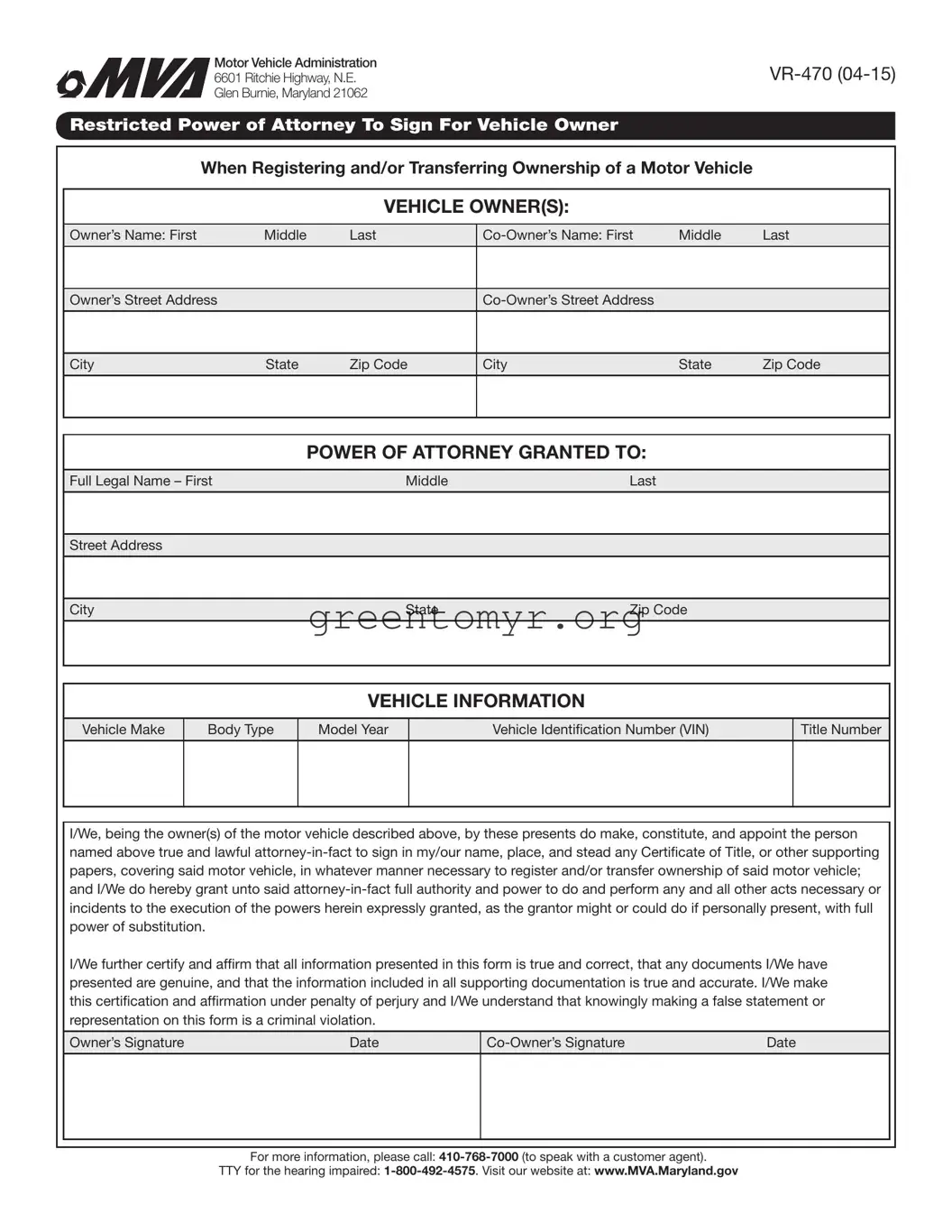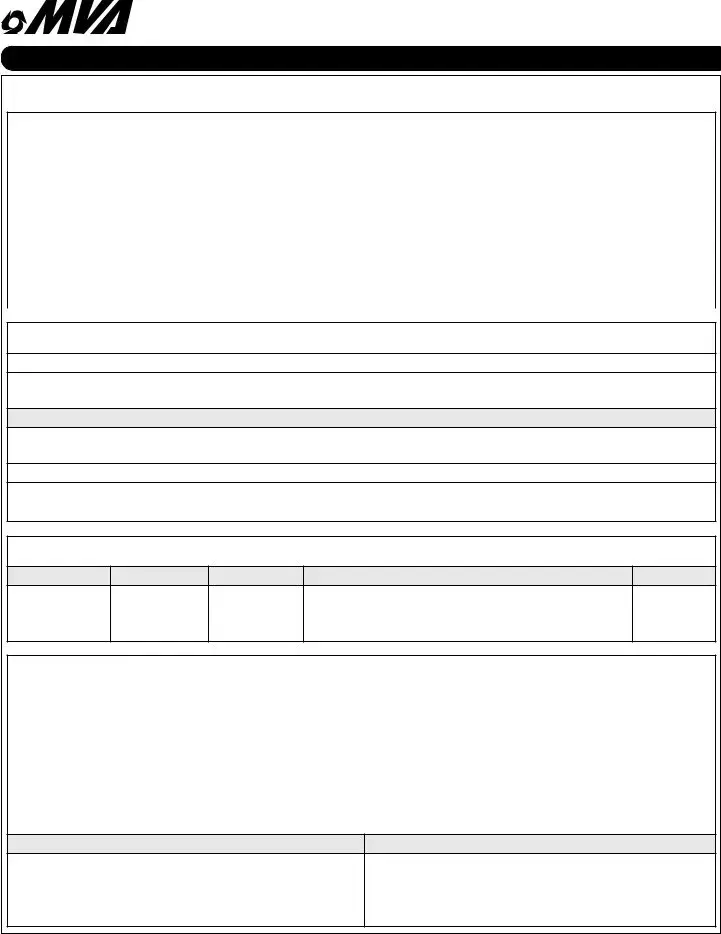Motor Vehicle Administration
oMWJ6601 Ritchie Highway, N.E.VR-470 (04-15) Glen Burnie, Maryland 21062
Restricted Power of Attorney To Sign For Vehicle Owner
When Registering and/or Transferring Ownership of a Motor Vehicle
VEHICLE OWNER(S):
Owner’s Name: First |
Middle |
Last |
Co-Owner’s Name: First |
Middle |
Last |
|
|
|
|
|
|
Owner’s Street Address |
|
|
Co-Owner’s Street Address |
|
|
|
|
|
|
|
|
City |
State |
Zip Code |
City |
State |
Zip Code |
|
|
|
|
|
|
POWER OF ATTORNEY GRANTED TO:
Full Legal Name – First |
Middle |
Last |
|
|
|
Street Address
VEHICLE INFORMATION
Vehicle Identification Number (VIN)
I/We, being the owner(s) of the motor vehicle described above, by these presents do make, constitute, and appoint the person named above true and lawful attorney-in-fact to sign in my/our name, place, and stead any Certificate of Title, or other supporting papers, covering said motor vehicle, in whatever manner necessary to register and/or transfer ownership of said motor vehicle; and I/We do hereby grant unto said attorney-in-fact full authority and power to do and perform any and all other acts necessary or incidents to the execution of the powers herein expressly granted, as the grantor might or could do if personally present, with full power of substitution.
I/We further certify and affirm that all information presented in this form is true and correct, that any documents I/We have presented are genuine, and that the information included in all supporting documentation is true and accurate. I/We make this certification and affirmation under penalty of perjury and I/We understand that knowingly making a false statement or representation on this form is a criminal violation.
Co-Owner’s Signature |
Date |
For more information, please call: 410-768-7000 (to speak with a customer agent).
TTY for the hearing impaired: 1-800-492-4575. Visit our website at: www.MVA.Maryland.gov

